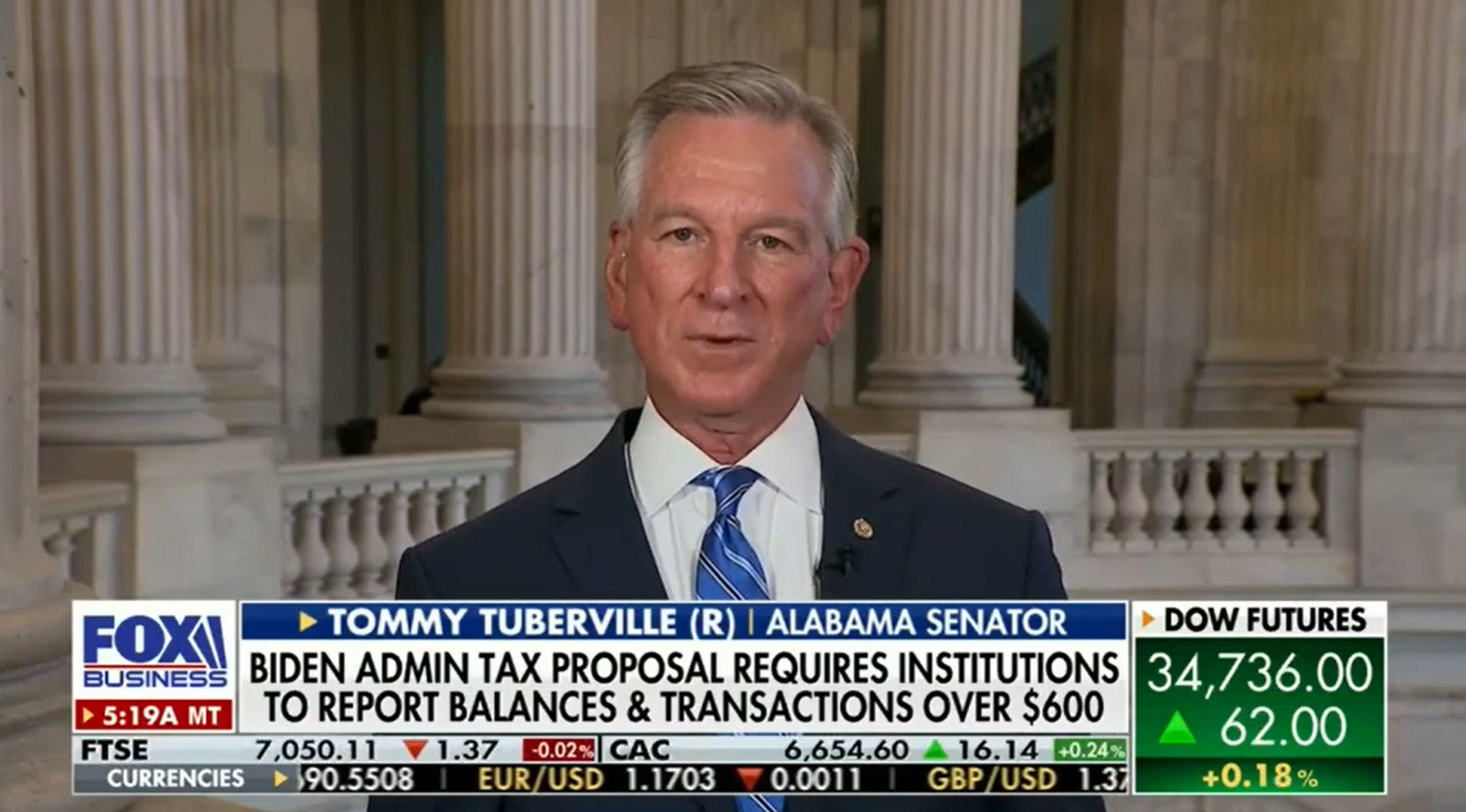By Brandon Moseley
On Monday, September 27 U.S. Senator Tommy Tuberville (R-Alabama) announced that he introduced a new bill that would prohibit Biden's plan requiring financial institutions to report transactions of $600 or greater to the IRS.
President Joe Biden’s (D) proposal would require financial institutions to report every financial transaction that Americans make of $600 or more to the Internal Revenue Service (IRS).
Sen. Tuberville appeared on Fox Business’s ‘Mornings with Maria’ to talk about his legislation. The Protecting Financial Privacy Act would prohibit the IRS from requiring financial institutions to report the financial transaction data of their customers in addition to what is already required by the Bank Secrecy Act.
“Right now, they [IRS] can find out every $10,000 you spend, but now they want to move it all the way down to $600, to $600 dollars,” Tuberville explained. “And if you go out and buy a wedding dress for your daughter, or if you go buy a gun to go hunting, if you buy plane tickets, they’re going to know everything you do. And they [IRS] cannot keep a secret – they will release all your records to the media or whoever…Today, I am dropping a bill on the floor, just in a few hours, it’s the Protect the Financial Privacy Act….The American people don’t need the IRS in their business any more than what they are.”
“They [Democrats] want to do is tax the American people, the farmers, the people in rural areas,” Tuberville claimed. “But to make up for that they want to give the SALT reductions in terms of the limousine liberals in New York and California and give them the right to write off things to where they don’t have to pay as much taxes.”
The Protecting Financial Privacy Act would address a controversial provision, proposed by President Biden, included in the upcoming reconciliation bill. That provision would increase the surveillance capacity of the IRS by mandating that banks, credit unions, and other financial services providers report each time one of their business or personal account customers makes a financial transaction of $600 or greater. Such financial transactions include the payment of a bill, a deposit, a withdrawal, a transfer of funds, or the purchase of a security. Tuberville claims that the inclusion of this provision in the reconciliation package would serve as a budget offset for a state and local tax deduction cap increase that would benefit wealthy Americans living in high tax blue states at the expense of every American who values financial privacy.
The Protecting Financial Privacy Act would prohibit the IRS or any other federal agency from creating, implementing, or administering a financial reporting regime that would require financial institutions or individuals to report data on financial transactions or account balances to the IRS in addition to what is already required by the Bank Secrecy Act. Currently, financial institutions are only required to report cash transactions of $10,000 or more to the Treasury Department.
Tuberville claimed that the IRS has a long history of data security failures and political bias towards conservative groups and individuals. Tuberville suggested that providing the IRS with additional financial transaction data will make it easier for them to weaponize taxpayer information and would be inflicting a hefty regulatory and compliance burden on community banks and credit unions, which have limited budgets and staff. The Senator suggest that one result of this would be that many locally owned financial institutions could be forced to close if they are unable to comply with the proposed reporting requirements. Community bank and credit union closures Tuberville warned would have severe negative impacts on the main street Americans and small businesses they serve.
Tommy Tuberville is in his first term representing Alabama in the United States Senate and is a member of the Senate Armed Services, Agriculture, Veterans’ Affairs, and HELP Committees. Tuberville comes to the Senate after decades of experience as a college football coach. He was the head coach at Ole Miss, Auburn, Texas Tech, and Cincinnati. He was also the defensive coordinator at Miami, where he won a national championship, and Texas A&M.










